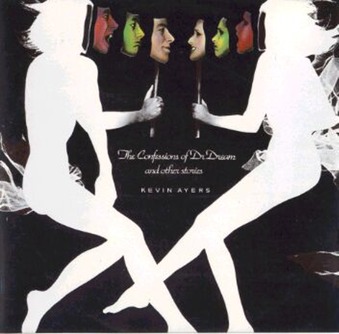Monday, 29 April 2013

In my reading of the Kevin Ayers story, three albums into his career Ayers had gone for something approaching mainstream success with his fourth (Bananamour), largely, I think, on the basis that if certain of his notional peers could do it (and here we note the relative successes of Pink Floyd and Mike Oldfield’s Tubular Bells) why couldn’t he? A bit of tweaking around the edges and, well, you never know. Stranger things have happened...
And when Bananamour once again failed to move significant quantities you might conclude the problem lies with the label and start looking at a switch. Island Records were known to lavish money on developing and promoting their own artists, but that sort of generosity usually comes at a price and the price usually involves supervision and a degree of diminution in the old artistic freedom.
In this case that meant Ayers was absent from the producer’s chair, with his place taken by Rupert Hine. It also meant there was money to throw around, which goes a long way to explaining the presence of a few more notable names alongside the usual suspects. Mike Ratledge and Mike Oldfield are back, but they’re joined by a substantial array of session players.
Mike Giles (ex-King Crimson) gets to sit behind the drum kit, but there are three bassists (John Perry, John Gustafson and Trevor Jones), three other guitarists alongside Oldfield and Patto man Ollie Halsall and a whole slew of keyboard players and backing singers. Throw in Lol Coxhill on sax Geoff Richardson’s viola, Ray Cooper on percussion and a guest vocal appearance from Nico and Ayers has plenty of sonic elements to work with.
The commercial aspirations are fairly obvious from the start of Day By Day, full of funky pop elements, with punchy backing vocals and a catchy hook, and See You Later definitely channels the Bonzo Dog Band before running straight into Didn't Feel Lonely Till I Thought Of You, one of Ayers’s all-time classics, with a superb guitar solo from Ollie Halsall. Up to that point I was unconvinced about the changed approach, but here we’re back in a familiar environment with added punch from the female chorus. Ayers at his best.